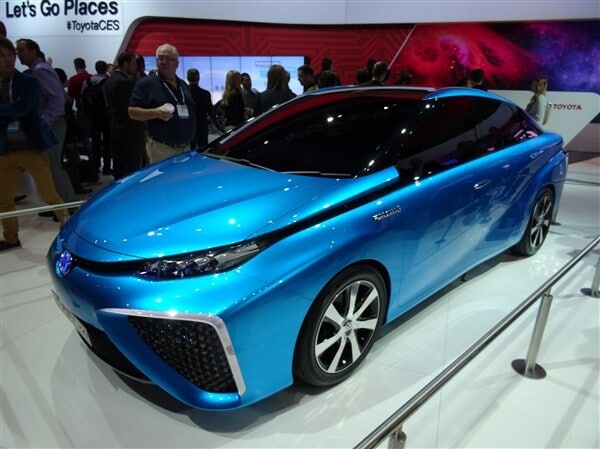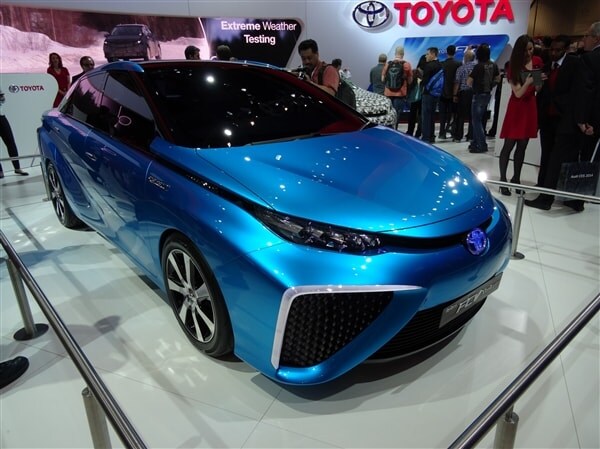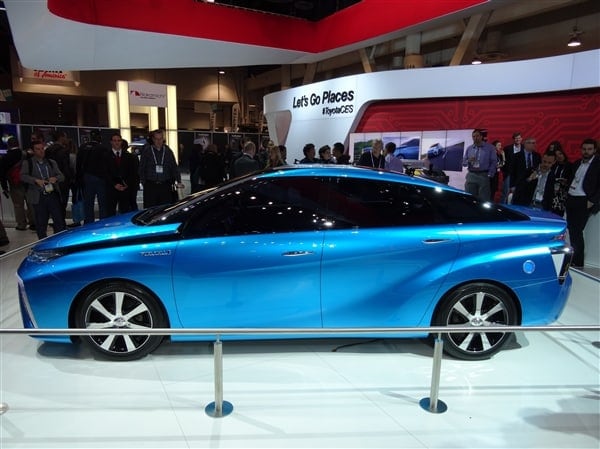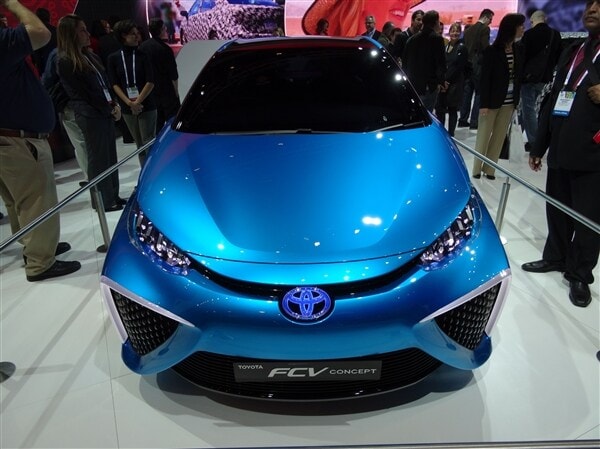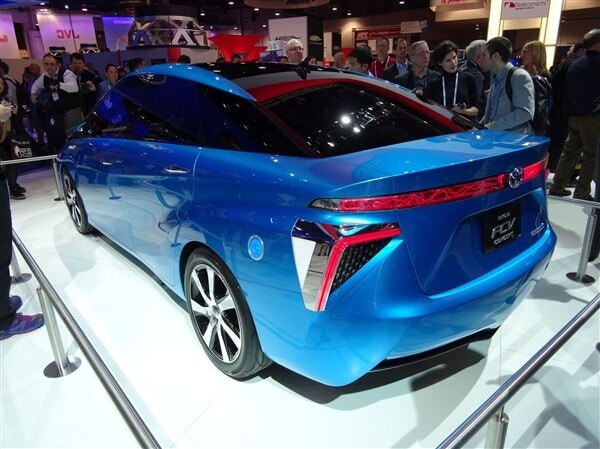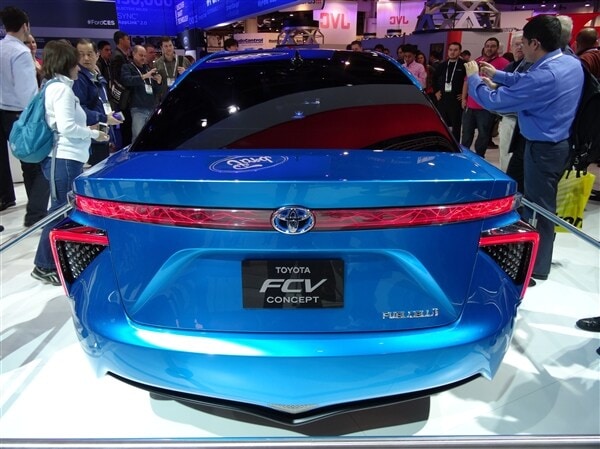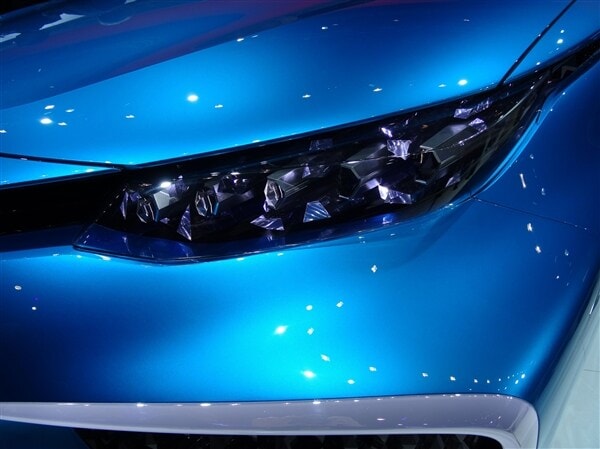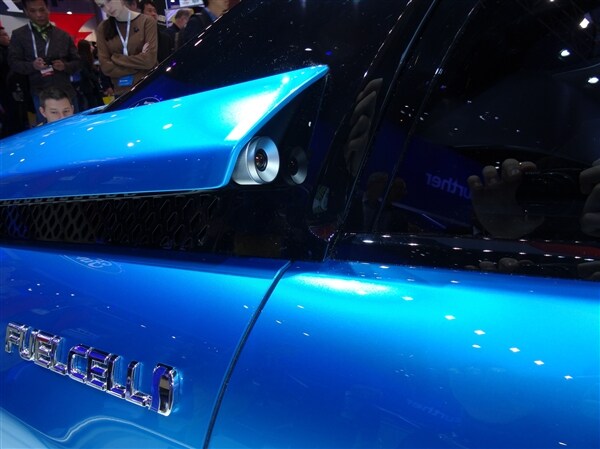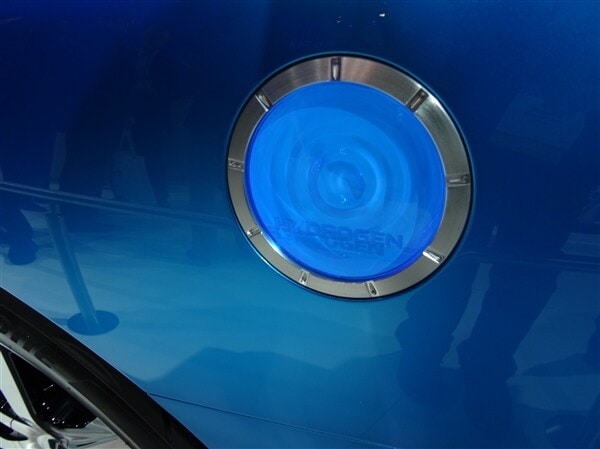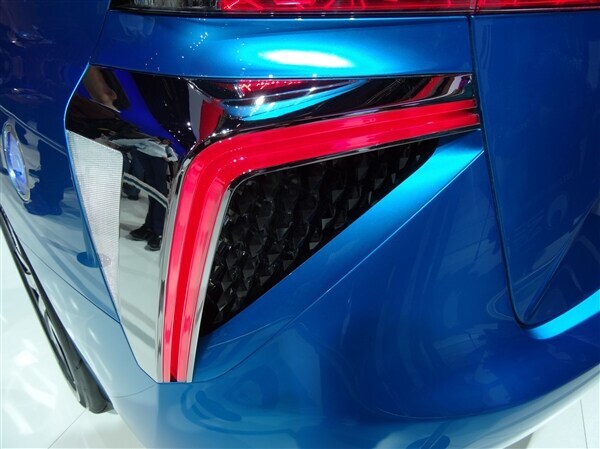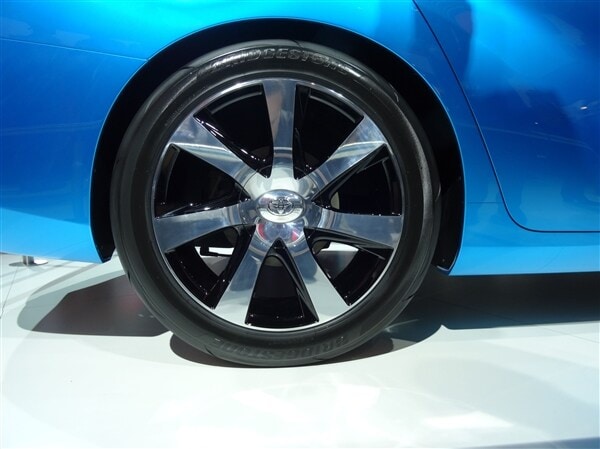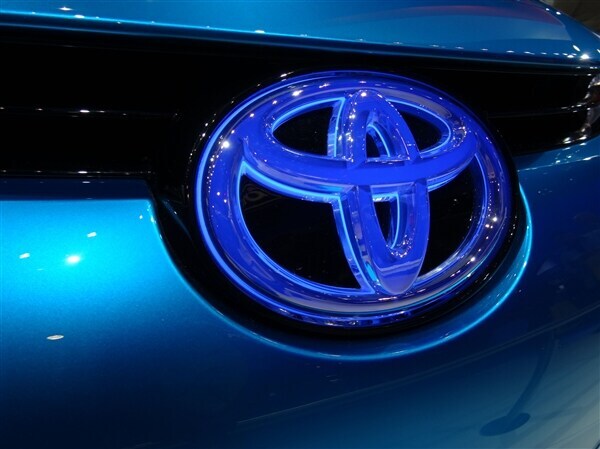Toyota used an electronics show focused on the future of tech to introduce its own futuristic model: the hydrogen-powered FCV concept. And just like so many of the digital devices vying for attention here at the International CES in Las Vegas, this one is destined to arrive sooner than you may think.
In fact, Toyota says its 4-passenger fuel-cell sedan will go on sale next year.
"We aren’t trying to re-invent the wheel; just everything necessary to make them turn," said Bob Carter, senior vice president of automotive operations for Toyota Motor Sales (TMS), U.S.A. Inc., at the opening of CES, the world’s largest trade show. "Fuel cell electric vehicles will be in our future sooner than many people believe, and in much greater numbers than anyone expected."
Also: Check out the new cars at the 2014 Detroit Auto Show
While pricing, a firm launch date and even the forthcoming model’s name are still up in the air, we do know a few pertinent stats. Toyota’s zero-emissions fuel-cell vehicle will have a driving range of about 300 miles and the ability to be refilled with hydrogen in three to five minutes — much quicker than the recharge times required for pure electric, battery-powered vehicles. As for costs, Toyota has only said that the vehicle will be "reasonably priced."
Of course, unlike gasoline pumps and electrical outlets, hydrogen refueling stations at present are few and far between. Toyota says it realizes this fact and is working to improve the hydrogen infrastructure.
In California, where Toyota’s hydrogen-powered car will launch, the automaker has partnered with the University of California Irvine’s Advanced Power and Energy Program (APEP) to map out possible refueling locations.
Also: Compact Cars at a glance
Toyota has been researching fuel-cell vehicles for two decades, and is now the latest automaker primed to introduce production models on a larger scale. This past November, Hyundai announced it is bringing to market the 2014 Tucson Fuel Cell vehicle this year, while Honda also announced a new fuel-cell electric vehicle that is to debut in 2015 as a follow-up to the current FCX Clarity.
So why would you want a hydrogen-powered car instead of, say, a Prius hybrid? The FCEV could appeal to buyers who, like industry insiders at this show, want to be on the leading edge, or drivers who want a zero-emissions car but don’t want the recharge times or range-issues associated with electric vehicles. And while the Toyota FCEV’s estimated 0-60 mph time of around 10 seconds isn’t blazing fast, it’s also not achingly slow, and combined with the power-right-now torque of electric motors, could help this vehicle feel more responsive than your average hybrid.
Toyota says its fuel-cell technology could also pave the way toward other model types, allowing it to produce a broader array of zero-emissions vehicles that appeal to more buyers. The automaker urges us to "stay tuned" about its not-so-in-the-future futuristic model and we look forward to doing just that.
More alternative energy and hybrid vehicles…
Ford C-Max Solar Energi Concept debuts at CES
We’ve just tested the new 2014 Honda Accord Hybrid
We travelled to Iceland to test the new 2014 Subaru XV Crosstrek Hybrid
Popular at KBB.com
10 Best Sedans Under $25,000
12 Compact Cars for 2014
10 Best Luxury Cars Under $40,000
